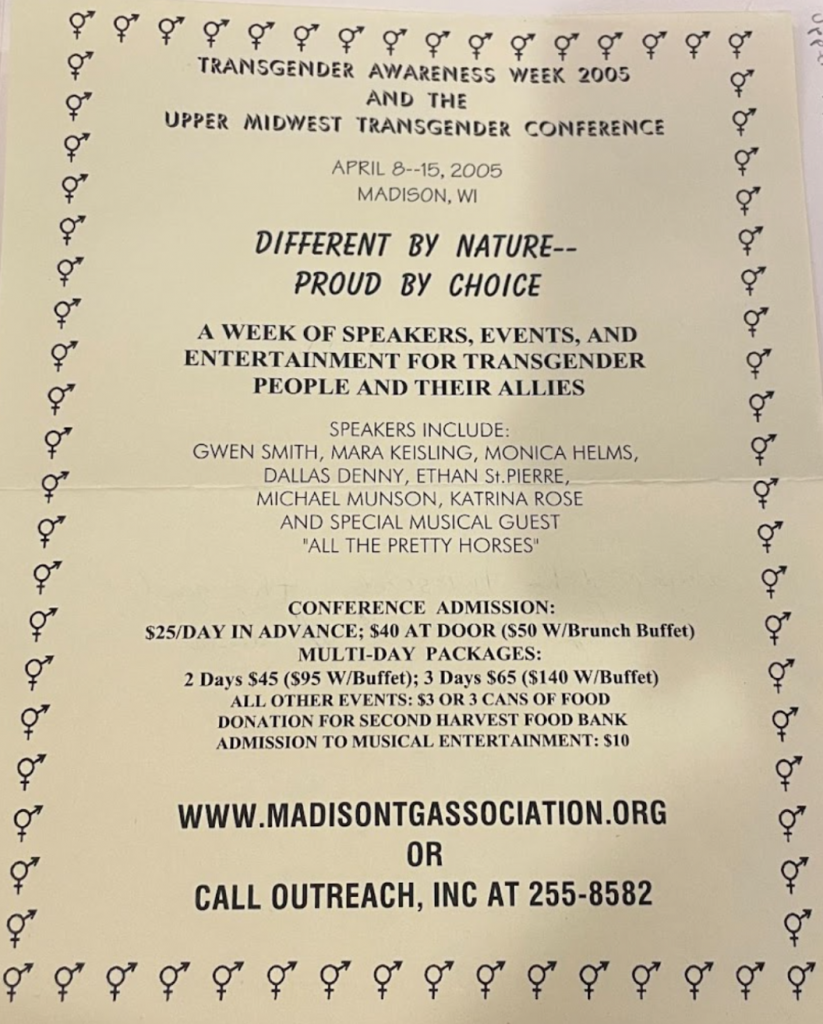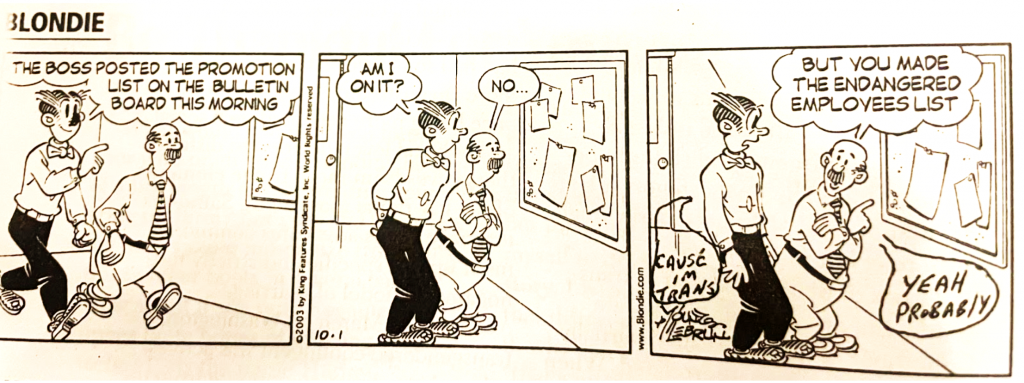Check In With Student Historians – Haleigh and V
The Archives’ Student Historian Program provides undergraduate students at the UW-Madison the opportunity to conduct independent research with support from Archives staff. Working closely with a staff member, the Student Historian chooses a research topic that centers on a historically underrepresented campus community. Here are their mid-semester reflections on their experience so far.
Haleigh Smith: Reflection
During my time as a student historian at UW Archives, I have had various twists and turns in my researching process. Having started this summer, I began brainstorming my interests. Some of these included Gay purges, UW during the Civil War era, Queer resistance on campus, Red Scare culture at UW, and more. As a result, I cast a wide net in my initial research. In the beginning I really focused on the Gay purges on campus which occurred during the early to mid 1900’s, primarily during the 1950’s. I was interested in this topic as it fused my varying interests in Cold War culture and politics, queer history, and cultural anxiety. While the research that I came across was extremely interesting, there has already been quite a bit of scholarship on this at UW. Additionally, being interested in the Civil War at UW, there were not a ton of stories or groups that have not been researched that pertained to my interests. Contrastingly, Red Scare and Cold War at UW is the historical period the university is most recognized for and subsequently written about–again, not much scholarship I felt drawn to expand on. As a result of these dead-ends for me in research, I pivoted to really diving into researching a history of resistance against sexual assault on campus. During this time, I worked with primary sources around sexual assault which occured at the university as well as organizations which formed as a result. While doing this research, working with material about really explicit stories became very difficult for me, and with sadness, I decided to move forward with another topic.
Finally, I committed to continuing to research campus culture and response around the AIDS epidemic. In my free time, I have been engaging more with learning about health related moral panic, which evidently led me to learning a lot about culture and politics around the AIDS epidemic. In my research process for this topic, I began reading broader historical context of the epidemic, learning about it at a national scale and focusing then more so on Wisconsin. I did this largely by reading Richard Wagner’s books Coming Out, Moving Forward: Wisconsin’s Recent Gay History, which discusses queer history in Wisconsin between the early 20th century to the 2000’s. Within this book, I learned more about the broader culture around the AIDS epidemic in Wisconsin, but particularly at UW the medical school’s contribution to progress and change. As a result of the book’s discussion of progress around AIDS and the medical school, I began focusing on their actions in regards to STD(I) prevention and advocacy, leading me to the Blue Bus Clinic. The Blue Bus Clinic was created by medical students in 1969 hoping to address a lack of addiction and STD information on campus. In doing so, the students bought an old blue bus, and opened it behind the Mifflin Street Co-Op. Subsequently, the Blue Bus Clinic grew quickly, having high demand and clearly serving a need in the community. Medical School faculty and administration, seeing its success and importance, assisted in its growth, eventually laying the groundwork for sexual health services at University Health Services (UHS). While this clinic was opened “before” the AIDS epidemic, I am excited to dive deeper in seeing its growth and involvement in the campus climate around the epidemic.
V Hernandez-White: Spilling the “T” on UW-Madison’s LGBTQ+ History!
Hello people! I’m very excited to be the University Archives’ Student Historian this year and get started on my research project. I’ve been in the initial topic selection stage since I
started in September, and right now I plan to research the transgender and gender diverse (TGD) community on campus. Now more than ever, TGD histories and voices need to be documented and studied, and in my research so far I’ve noticed a huge gap between the amount of historical sources related to Lesbian, Gay, and Bisexual topics compared to TGD topics. This makes sense considering the fact that the word “Transgender” didn’t really enter the mainstream until around the 1980s, but it’s become frustrating now that they’re all grouped into the same acronym. I’ve skimmed through too many “LGBTQ+” sources where the TGD community isn’t even mentioned in passing.

Folder 14. University of Wisconsin-Madison Archives, Madison, WI.
But all hope is not lost! I recently went to the University Archives in person for the first time (10/10 would recommend checking it out yourself), where I got to look through the Wayne Gathright Collection—just one collection of many in UW’s LGBTQIA+ archive. Gathright’s collection contains mostly newsletters, event information, and literature related to LGBTQ+. communities in Madison and Dane County, specifically the trans community, all collected by Gathright himself, a self-identified heterosexual crossdresser. Flipping through the collection’s folders was a very rewarding experience. The early 2000’s Madison Area Transgender Association newsletters are rich with advice and local resources for trans people in Madison, eye-opening personal writings and essays, and sometimes newspaper comic strips—lightly edited with a transsexual flair.

UAC260, Box 1, Folder 8. University of Wisconsin-Madison Archives, Madison, WI.
I was luckily able to find many sources advertising TGD-related events on the UW campus, such as this flyer for the 2005 Upper Midwest Transgender Conference, held at the Memorial Union and partially sponsored by the UW LGBT Campus Center (now the GSCC). These kinds of sources will help give me a better understanding of how recognition and acceptance of trans identity at UW evolved over the years, and I plan on using them to sketch out a rough timeline of trans history at UW. Overall, this background research will help me create the historical narrative I want to share through my research as Student Historian, while also revealing the many gaps that remain. This is why I am leaning towards an oral history project, so that TGD students, staff, faculty, and alumni at UW-Madison can have the agency to create the history and future of their own community.
I’m excited to follow whatever path my research takes me, and I hope you’ll come along! Thanks for reading!